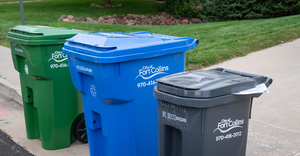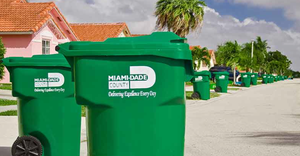Engineering Report Gives Electra Green Light for Battery Recycling
December 9, 2021

TORONTO - Electra Battery Materials Corporation (TSXV: ELBM) (OTCQX: FTSSF) (the "Company") today announced positive results from engineering studies and metallurgical test work for lithium-ion battery recycling. The Company intends to commence refining the key components of electric vehicle batteries, known as black mass, in mid-2022 as the second phase of a four-part strategy to become a low carbon North American battery materials park that will include battery grade nickel and cobalt, battery recycling and precursor manufacturing. Electra is poised to become one of the first companies to treat recycled battery materials using existing infrastructure and equipment at its Canadian hydrometallurgical complex.
HIGHLIGHTS
Through extensive testwork, the Company has developed a flowsheet that can recover key elements from batteries, including lithium, nickel, cobalt, copper and graphite; patent applications are pending
Engineering studies confirmed that Electra's existing refinery complex has the infrastructure, scale and equipment to process a bulk sample of material on a full production scale basis in mid-2022 with an initial investment of under US$3 million
Electra will grow its recycling business in a staged, modular fashion, initially targeting black mass from consumer electronics and subsequently targeting primary battery scrap material from North American EV cell manufacturers
Recycling facility will have a very low carbon footprint due to a 100% hydrometallurgical process and hydroelectric power source resulting in nearly zero greenhouse gas (GHG) emissions
"A secure, sustainable and domestic solution for recycling lithium-ion batteries is essential as North America shifts to electric mobility. At present, there is no industrial scale hydrometallurgical facility in North America to recycle the black mass material that is recovered when lithium-ion batteries are dismantled and shredded," said Trent Mell, CEO. "With our existing facility in Canada, Electra can be the first recycler to establish a closed-loop supply of battery materials, making electric vehicles more sustainable and more reliant on domestic material. Our first concrete steps on that path will be a commercial scale demonstration plant in 2022 utilizing existing facilities and equipment."
Vice President, Project Development Mark Trevisiol added: "We plan to demonstrate the ability to make products containing, nickel, cobalt, copper, lithium and graphite all from recycled lithium-ion batteries. This would be the first industrial scale operation in North America to recover this list of recycled products for resale. Our first circuit will treat black mass from suppliers that we have identified as potential partners and can then be expanded to treat battery scrap from CAM and cell manufacturers."
Electra's processing team has been working with Hatch and SGS Lakefield since Q2 2021 to develop a flow sheet targeting lithium, nickel, cobalt, copper, graphite and manganese, using a 100% hydrometallurgical process that employs existing equipment at the Company's refinery in Canada. Testwork confirmed that the refinery's current state will allow for successful hydrometallurgical processes to first produce cobalt, nickel, copper, lithium and graphite products at a commercial scale.
Capital costs for the demonstration plant are projected to be under US$3 million making use of existing equipment, infrastructure with an experienced processing team on site developing the Company's cobalt sulfate plant. An additional investment will allow the facility to produce battery-grade materials that can be directly returned to the lithium-ion battery supply chain. The Company has been contacted by more than 20 black mass producers in North America and around the world who are interested in selling their feed material to Electra for beneficiation.
Electra is expanding its permitted Canadian refinery to produce 5,000 tonnes of cobalt contained in a battery-grade cobalt sulfate beginning in Q4 2022. The refinery will have installed instantaneous capacity to operate at 6,500 tonnes per year. The Company's Battery Materials Park will host cobalt and nickel sulfate production plants, a large-scale lithium-ion battery recycling facility, and battery precursor materials production, which will serve both North American and global customers.
Initial capacity of the cobalt, nickel and precursor facilities at the Battery Materials Park will be designed to supply raw materials for over 1.5 million electric vehicles per year. The facilities will be built in a modular fashion, allowing Electra to expand capacity as the lithium-ion industry grows.
A recent report by BMO Capital Markets concluded that "hydrometallurgy (absent thermal/pyro pre-processing) [is] the premier lithium-ion battery recycling option, given its lower environmental footprint (a key factor in securing OEM partnerships and plant permits)." The report also notes that hydrometallurgy results in broader raw material recovery yield potential, enables better technology adaptability and better profitability. Based on independent peer comparisons conducted by London-based Minviro Ltd., Electra's facility will have 51% lower greenhouse gas emissions than comparable plants in China. Electra will remain true to its purpose and help make the world a better place.
About Electra Battery Materials
Electra is building North America's only fully integrated, localized and environmentally sustainable battery materials park. Leveraging the company's own mining assets and business partners, the Electra Battery Materials Park will host cobalt and nickel sulfate production plants, a large-scale lithium-ion battery recycling facility, and battery precursor materials production, which will serve both North American and global customers. Electra Battery Materials is an integral part of the North American battery supply chain, providing low-carbon, sustainable and traceable raw materials for the region's fast growing electric vehicle industry.
You May Also Like


